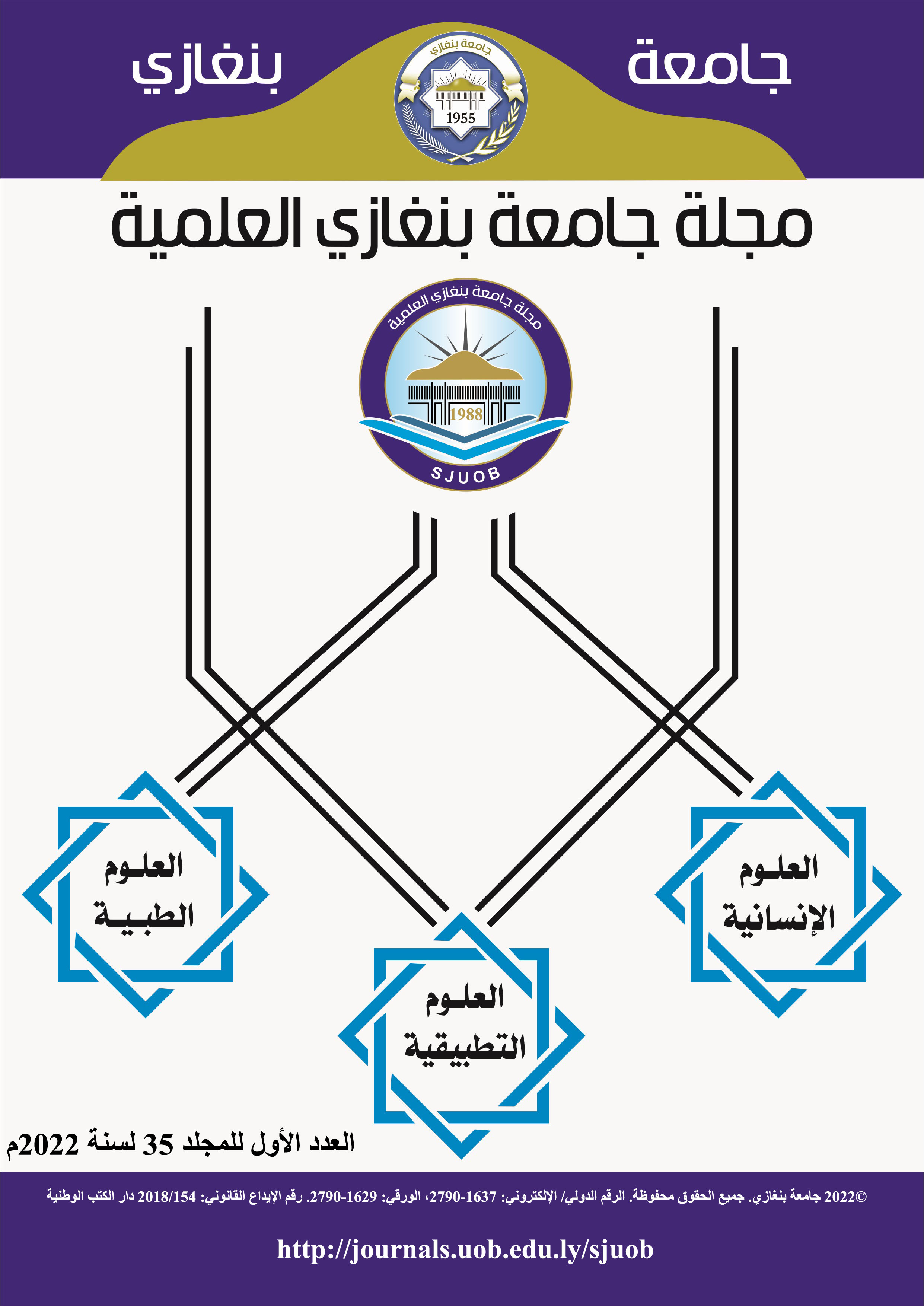The Knowledge and Attitude of Physicians working at the Benghazi Medical Center toward Electronic Prescribing Systems
DOI:
https://doi.org/10.37376/sjuob.v35i1.3264Keywords:
electronic prescribing systems, benghazi medical centre, attitude of physicians, analysis.Abstract
Background: Nowadays, Electronic Prescribing Systems (EPS) provide computer-based solutions for physicians to prescribe medicines to their patients. Many countries in the Middle East region have adopted these solutions, but health authorities in Libya have not yet adopted them. Aim: This study aimed to investigate the knowledge and attitude of physicians working at the Benghazi Medical Centre (BMC) towards EPS and the availability of facilities required for applying such an EPS in the BMC.
Methods: A cross-sectional survey of physicians in the BMC was conducted over one month in January 2018. The survey responses were collected and the data from all the respondents were analyzed by “SPSS" 25.0. and Microsoft Excel 2010.
Results: This questionnaire was answered by 105 physicians and surgeons from different departments at the BMC. About 48% of the respondents had no computers at their workplace, while 39% had one, and 11.4% used their own laptops. Most of the responding physicians use their computers to execute different tasks of their work, like writing patient information, reviewing drug information and writing medical reports. Approximately 27% of the respondents had internet access at their workplace, while about 64% did not. Using the internet, the respondents looked up different information about medications they prescribed; drug interactions, dosing, drug allergies, and contraindications were the most significant information sought. However, while the majority of the respondents had never heard about EPS (63%), most of them were willing to use it for prescribing medications (82.9%).
Conclusion: This is a preliminary study that perceives the readiness of a tertiary care hospital in Libya to be implemented via an electronic prescribing system. As seen, it shows the lack of basic needs, i.e., computers and internet access, for such systems in our Libyan national facilities, but it clearly shows the eagerness of Libyan physicians to use these systems. Finally, Libyan health authorities should push forward the implementation of these electronic solutions in hospitals as a part of a national health reform plan.
Downloads
Downloads
Published
How to Cite
Issue
Section
License
Copyright (c) 2022 The Scientific Journal of University of Benghazi

This work is licensed under a Creative Commons Attribution-NonCommercial-NoDerivatives 4.0 International License.



















